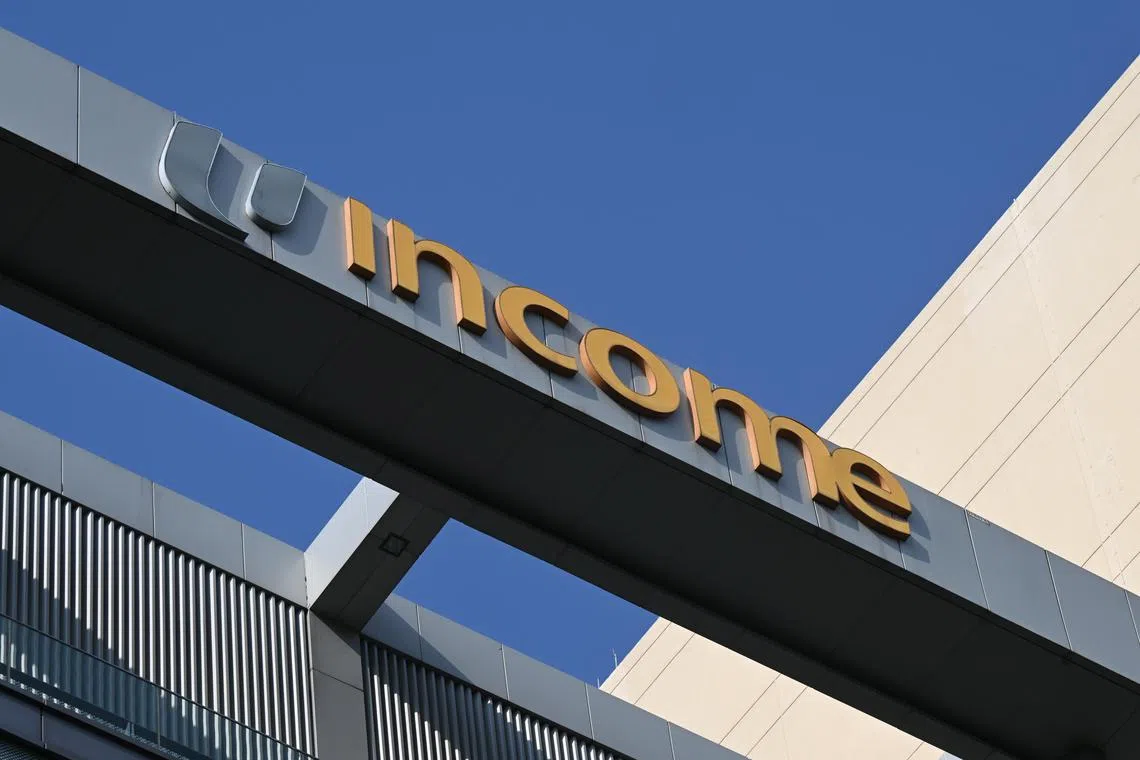ST Explains: What scuppered the Allianz-Income deal?
Sign up now: Get ST's newsletters delivered to your inbox

Allianz had made an offer on July 17 to acquire a 51 per cent stake in Income for $40.58 a share, valuing a deal at $2.2 billion.
PHOTO: ST FILE
SINGAPORE - An offer to take a majority stake in Singapore’s Income Insurance by German insurer Allianz has been called off, after a government assessment concluded that a deal in its current form would not be in the public’s interest.
That decision was announced in Parliament on Oct 14 by Mr Edwin Tong,
Allianz had made an offer on July 17 to acquire a 51 per cent stake in Income for $40.58 a share,
Had the deal been approved, it would have seen NTUC Enterprise’s (NE) current 72.8 per cent controlling stake in Income potentially whittled down to 49 per cent.
Why was the deal called off?
After reviewing the information provided by MAS in August, the Ministry of Culture, Community and Youth (MCCY) concluded that there was sufficient basis for it to intervene to protect the public’s interest, despite financial prudential requirements having been satisfied.
Mr Tong shared three reasons for MCCY’s decision.
First, the information provided by MAS revealed that Income was planning to return around $1.85 billion in cash to its shareholders within the first three years of completing the transaction, while still continuing with its social mission of providing affordable insurance to the public.
This is because Income would be expected to run its insurance business more efficiently with Allianz’s help, and would not need to hold as much capital as it does at present.
But Mr Tong explained that after it was corporatised in 2022 from a cooperative to its present structure as a company, Income had sought and obtained an exemption allowing it to carry over a surplus of $2 billion in capital.
If not for this exemption, that surplus would have gone to the Co-operative Societies Liquidation Account to benefit Singapore’s co-op movement.
MCCY noted that there was no arrangement to account for the $2 billion surplus and no clarity on how the funds would be directed towards advancing Income’s social mission.
Second, Mr Tong said MCCY was unconvinced that Income would still be able to continue fulfilling its social mission after the deal took place.
This is because there were no binding provisions or structural protections in the deal to ensure this remained the case after the acquisition.
“It is also not clear what Income might do after the capital extraction, for example, to adjust or trim its insurance portfolio, and what impact this could have on policyholders.”
Third, MCCY is not confident of NE’s stated intentions and Income’s assurances of maintaining the social mission.
“We had known earlier that the proposed transaction would leave NE as the minority shareholder in the new entity, with a minority of board positions and no ability to nominate the chairman of the new Income entity,” Mr Tong said.
“Taken together with the proposed capital extraction and the lack of structural protections in the deal to ensure the continuation of Income’s social mission, cumulatively, they pose a risk that MCCY judges not to be acceptable.”
The deal was announced in July and debated in Parliament in August. Why was it not called off sooner?
MCCY said it had no prior knowledge of Allianz’s offer for Income before it was publicly announced in July.
However, Mr Tong noted that, at the time, MCCY accepted the intent of a deal to strengthen Income, allowing it to be more competitive and financially sustainable over the long term.
Nevertheless, the matter was hotly debated by the industry and addressed in Parliament in August.
Following that Parliament session, MAS saw that Income’s planned capital optimisation could be relevant to MCCY’s views on the proposed deal, and shared the information with MCCY, including the terms of the proposed transaction.
It was at this point that MCCY, which had not seen this information earlier, became concerned and subsequently intervened to call off the deal in its current form.
What does this mean for Income, moving forward?
Speaking in Parliament on Aug 6, Second Finance Minister and MAS board member Chee Hong Tat said the insurance industry in Singapore has become highly competitive, with more than 50 insurance providers now operating here.
He noted that in both life and general insurance, Income has a market share of less than 10 per cent based on written premiums, and that the best way to protect policyholders is to have a competitive insurance industry and insurers that are well run.
This would provide stability over the longer term and offer choice, options and competitive rates to policyholders.
Mr Tong added that for Income to do good, it must first do well.
For these reasons, a deal may still be on the table for Income.
In a Facebook post on Oct 14, Prime Minister Lawrence Wong noted that the Government’s current concerns are over the structure and terms of the offer in its current form, but that it remains open “to a new deal that Income may pursue with Allianz or other partners, so long as our concerns are fully addressed”.


